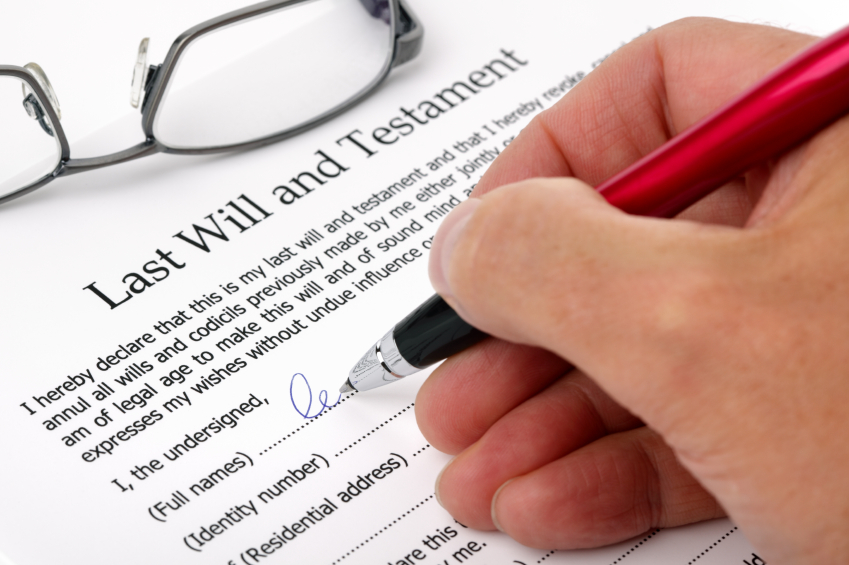
There are a lot of questions that pop up when buying a house with one of the most common ones being whether or not you need to have a will in place to make the purchase. While the short answer is no, a will is not legally required, it can make a lot of sense to put one in place.
Why create a will?
A will is a legal document that helps to sort out your affairs and settle your estate in the case of your death. This can be very helpful if there are several possible beneficiaries, as it ensures that your property and belongings are passed on to the individual(s) of your choice.
This can help to minimise tension between beneficiaries by creating a smooth and easy process to follow when distributing your estate. Furthermore, it allows you to ensure that any minor children are cared for financially until they are of legal age to take control of their inheritance.
Will I own my house if I die?
If you have a mortgage then it is highly recommended that you take out life insurance. This means that even if you only have a small amount of equity in your property, with the mortgage covering the rest, the house will be paid off if you die. Having life insurance can drastically reduce the stress and worry that your partner or dependants will face and will ensure that they can keep a roof over their heads. More...

The approach of the 2015 General Election has brought with it a vast array of pomp, policies and promises intended to secure the votes of the equally diverse factions of the UK public.
But before campaigning began in earnest, a plan was unveiled by George Osborne in March’s budget which promised first-time buyers up to £3000 in Government top-ups. For every £200 aspiring homeowners save, Osborne said, the Government will boost the amount by an extra £50, with a maximum pay out of £3000 for those who save £12,000.
On the surface the proposition certainly seems attractive, but what about the small print? We take a look at the pros and cons of Osborne’s Home Buyers’ ISA to help first time buyers make up their mind come election day.
The Home Buyer’s ISA – The Pros
Even for those in a steady job who can afford monthly mortgage payments, saving up thousands of pounds for a deposit can be impossible. In fact, according to Stephen Noakes of Lloyds Banking Group, saving for a deposit is a ‘key barrier when trying to buy a first home’. Osborne’s ISA will reward positive savings behaviour and make a real difference in helping people get a foot on the property ladder. More...

Labour’s pre-election pledge to tax owners of properties over £2million was greeted with mixed reviews when it was unveiled in September last year.
Critics of Labour’s mansion tax say that it could be “very disruptive” to the housing market, whereas supporters claim that wealth taxation will have a positive effect on the public purse.
But what exactly is the mansion tax? And how would it affect those looking to buy and sell higher value property in Wales? Find out more by reading this brief overview from Howells Solicitors.
Mansion Tax – Explained
The mansion tax, if put into place, would be an annual tax on properties worth over £2million. The vast majority of houses in the UK are worth far less than this, and as such the tax would apply to less than 0.5% of homes in the country. The £2million threshold would rise in line with the average rise of prices of high-value properties – so the number of properties paying the tax will not increase unless more are built. More...

The internet has revolutionised the property market – and the changes that it has brought with it are only accelerating as online marketing, mobile technology and distribution networks consistently evolve.
Customer journeys are changing. Researching the multi-faceted property market online is more convenient than ever, and perhaps even more significantly, it’s completely free.
The range and quality of properties available to view online has improved, as many store-based estate agents have been forced to adapt their business models to account for this change in customer behaviour.
However, no matter how important the internet is becoming for those buying, selling and developing property, it’s important to remember that estate agents, conveyance solicitors, and the expert services they offer are still essential, and the vast majority of sales do, and almost certainly will continue to, occur entirely offline.More...

Due to the way that the economy and society has changed over the years, the majority of houses are no longer bought by married couples. There are a variety of ways that property can be bought, including between partners, friends and with assistance from parents.
This change to the way in which property is purchased has seen more and more couples using a Declaration of Trust. Here is what they are, how they help and what needs to be included:
What is a Declaration of Trust (DoT)?
A DoT is a legally binding document which can be used to set out and define each individual’s contribution to the price of purchase. Typically, this will also include any additional costs and contributions to the property – such as who paid for furniture or solicitors fees and what the mortgage split will be.
Why is this used?
A DoT makes it much easier to figure out how much each party should receive if the property is sold and legally holds them to fairly sharing the equity. This is especially important if the parties have not split the cost of the property equally, as it stops either party from taking advantage of the situation.More...
